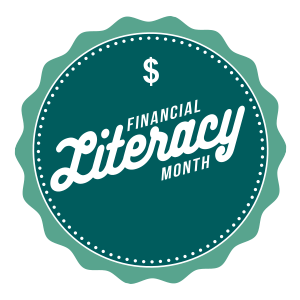

How much is tomorrow worth? The time value of money is one of the hardest ideas for consumers to understand, and one of the most important. Delayed gratification is not much fun, at least today.

That makes it all the more important for advisers to be crystal clear about how clients — current and potential — will likely reap returns. Interest-bearing accounts that deliver metronomic compounded returns aren't the same as market accounts that count on the long arc of time, plus dividends and other underlying factors, to buoy results that outpace inflation and fees.
“It’s a fundamental mathematical misunderstanding used by financial advisors when they try to project growth in financial assets,” said Michael Finke, professor of wealth management with the American College of Financial Services. “People use a rate of return to project growth in savings over time. They have an idea that if you invest in riskier assets you’ll get, say, an 8% return. But that’s not 8% growth.”
Many factors play into this misleading math, Finke said. Stocks are much more volatile than bonds — and more volatility means a bigger difference between average returns and actual investment growth over time (known as geometric returns). For example, an investor will need a 25% return to make up a loss of 20%. That’s why a 20-year S&P 500 investment made during any month of 1999 or 2000 never grew to an amount higher than long-term Treasury bonds despite often having a higher average annual return. Stocks have to work hard to overcome volatility, he explained.
There you have it: Don't use compound-return logic to make a case for long-term investing. It's more complicated than that, and it's just not accurate.
Besides, inflation and fees also skew results. Don't pretend they aren't factors.
It's essential to clearly delineate interest-driven results from market-driven results. Americans very much need to understand the difference, as they remind themselves of the value of insured bank accounts.
Look no further than the Securities and Exchange Commission for how to do it right. Its handy compound interest calculator clearly labels an interest-rate field and makes no pretense of estimating investing returns. Thank you, SEC, for this proper example of expectation management!
And the “miracle of compound interest” is swiftly toppled by the harsh realities of retirement calendars. Just ask this year’s newly or nearly retired, who are sick about the market retreat that has mowed down their investment returns, forcing them into painful financial and lifestyle decisions.
Yes, investing early, generally speaking, should pay off. But it’s not a sure thing, so don’t use sure-thing terminology to prove the point.
Worst of all, abusing compounding terminology undermines the message that Americans really, really do need to invest early and regularly.
Some do, and some didn't, couldn't, or wouldn't.
Many Americans are realizing in midlife that the time value of money isn't something they can make up.
But if they get the message that they're hopelessly behind, they'll just give up.
What they need to hear is that it’s never too late. You can’t make up for lost time, but most Americans can find a way forward, from wherever they are. If they have to catch up now, they have many more options than they did decades ago. Side hustles abound. Low-fee vehicles speed net return. Employer programs can accelerate retirement savings.
The best time to start is always now. Hope, not judgment, is what persuades people to do better by their future selves.

By listening for what truly matters and where clients want to make a difference, advisors can avoid politics and help build more personal strategies.

JPMorgan and RBC have also welcomed ex-UBS advisors in Texas, while Steward Partners and SpirePoint make new additions in the Sun Belt.

Counsel representing Lisa Cook argued the president's pattern of publicly blasting the Fed calls the foundation for her firing into question.

The two firms violated the Advisers Act and Reg BI by making misleading statements and failing to disclose conflicts to retail and retirement plan investors, according to the regulator.

Elsewhere, two breakaway teams from Morgan Stanley and Merrill unite to form a $2 billion RIA, while a Texas-based independent merges with a Bay Area advisory practice.
Orion's Tom Wilson on delivering coordinated, high-touch service in a world where returns alone no longer set you apart.
Barely a decade old, registered index-linked annuities have quickly surged in popularity, thanks to their unique blend of protection and growth potential—an appealing option for investors looking to chart a steadier course through today's choppy market waters, says Myles Lambert, Brighthouse Financial.
